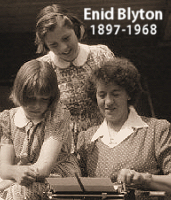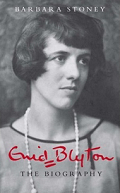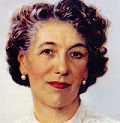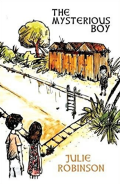Hide & Seek
by Sally NearyPART 1: New Year Revelations – New Year's Day 1986 – Cornwall and Berkshire
The wind blew strongly through the hall as Bill Cunningham opened the front door to step outside and take a few breaths of the cold morning air. There had been a frost overnight, and the sun was gradually breaking through the clouds, shedding a pale light across the cliffs beyond. The waves were crashing against the rocks, as if in celebration of a new beginning, thought Bill. Another New Year's Day, and another year. I wonder what this one will bring?
After a few minutes, he went back inside and shut the door behind him. He walked into the kitchen where his wife Allie was whisking eggs in a large basin. "It looks as if we have enough for an army here," he laughed, looking at the range of food prepared on the work-surface.
"Well, I thought a New Year's Day brunch, rather than breakfast and lunch, would be the best option for today," she said, looking up. "I knew everyone would appreciate a later start after such a late night, and a mid-morning meal at about eleven o'clock will take us through the day until tea-time, and give us time for a nice long walk."
"Good idea," replied Bill. "I think I can hear stirrings upstairs already. I'll make a couple of pots of coffee and help you prepare the table."
The kitchen door opened, and Lucy-Ann walked in smiling. "Happy New Year once again, both of you," she said. She kissed both Bill and Allie. "Snubby is just surfacing. I think he is already regretting starting on that second bottle of brandy last night, Bill," she laughed. "You really do encourage him. I blame you entirely."
"Well, I feel quite alright," said Bill, smiling. "Some people, of course, just can't take it."
"Snubby takes it alright," sighed Lucy-Ann. "I am continually trying to persuade him to eat and drink less for the sake if his health, but his good intentions never seem to come to anything."
"Well, after brunch, as Allie calls it, we will have a good long walk along the cliff, and that will help to get rid of last night's excesses," said Bill.
"You gave us a wonderful dinner last night, Aunt Allie," Lucy-Ann gave her aunt a hug," and it's so nice for us to be down here again with you and Jack and Sue, particularly as we didn't see you at Christmas this year."
"We missed you," replied Allie, "but I know you can't come down every year. Snubby naturally wants to see his own family at Christmas occasionally."
"It was nice to see them all again at Christmas, I must say" said Lucy-Ann. "There were seventeen of us at Barney and Diana's at Ricklesham on Boxing Day – all of us, Roger and Isabelle and the girls, Barno and Susan of course, and Barney's Aunt Katherine as well. Barney and Roger organised a murder mystery game, and it was hilarious."
"I think I can hear the others coming down," said Bill. "Yes, we have company!"
The family were soon seated at the table. Kiki was sitting quietly on Jack's shoulder, hoping for some unexpected gifts from the table. "No go, Kiki old bird," said Jack. You know I won't feed you at the table. You have already had some sunflower seeds, and there will be more later." Laddie was lying at Snubby's feet, looking up at him hopefully.
"This is an excellent idea," said Snubby, approvingly, helping himself to scrambled eggs with smoked salmon. "A good lie in and then a splendid meal to start the New Year. You really look after us very well, Allie, when we visit you."
"Of course, and naturally we would like to see you more often, but we are a long way from London, and I know how difficult it is for you and Lucy-Ann to get down here. We had Dinah with us at Christmas of course, although she wanted to be back in London for New Year – to be with Alastair of course," Allie smiled happily.
"They were both going to a very smart party last night in London," said Lucy-Ann, knowingly. "I went shopping with her before Christmas for a dress, and she got just what she wanted at Harvey Nicks. I bet she looked fabulous last night."
"She looked very well at Christmas," replied Allie. "I don't think I have seen her so relaxed for years. She and Alastair apparently had a wonderful holiday in Bermuda. She was still slightly sun-tanned."
"I expect she'll call later to wish us Happy New Year," said Bill, reaching for some cold ham, "and we must also call Phil and Caro later this afternoon – at about mid-day their time." He paused a moment, and looked up. "I have also got some news for you all when we have finished eating."
"What kind of news Bill, good or bad?" asked Jack.
"I have had a letter from Gus," said Bill. "I will explain everything after we have eaten and show it to you."
"We always hear from him at Christmas," said Jack. "I think it must be almost two years since we met up in London when he was over here on business." He had the feeling that Bill had something significant to tell them and wondered why he had left it until now to mention it. He possibly didn't want to spoil the New Year celebrations, thought Jack.
When everyone had finished eating, Allie brought in a fresh pot of coffee, and the family sat round the table, looking expectantly at Bill.
"Bill, do tell us, are Gus and his family in some kind of trouble," asked Lucy-Ann, anxiously.
Bill sat back, stirring his coffee. "Well, yes, I'm afraid they are," said Bill. "I didn't want to mention it last night, obviously. He has written to me, asking for help. He needs to get out of Europe for some time, probably about six months, and go under cover. He fears his life is in danger," he added quietly.
"Tell us everything, Bill", said Jack. "What exactly is this all about?"
"Well, you know the history," replied Bill, sipping his coffee. "The monarchy in Tauri-Hessia was abolished in the mid 1950s, following a coup d'etat by the communists, and Gus's family had to go into exile in Austria. Tauri-Hessia was the last of the Eastern European monarchies to become republic – Bulgaria, Hungary and Romania all became communist after the war. Gus' uncle, as King, was a very strong ruler, and it was because of his strength as a leader and because he had such strong support from his country that it retained its monarchy for as long as it did."
"If we hadn't rescued the King from the hands of Paritolen, Bill, all those years ago, I expect that Tauri-Hessia would have become a republic then," said Jack quietly. "Paritolen and his gang wanted the young eleven year old Prince Aloysius on the throne so that they could manipulate him and get rid of the monarchy. They were obviously communist sympathisers, weren't they Bill?"
"Yes, they were, and Gus, or rather Prince Aloysius, wouldn't have lasted five minutes on the throne," said Bill. "Our Government at the time was very keen for Tauri-Hessia to retain its monarchy and to keep the Russians out. The communists, with Russian backing, had already taken over too many countries in Europe, and as we know, their ambitions were of great concern to the west."
"As you know, the Tauri-Hessian royal family settled in Vienna after the coup," continued Bill. "By then, Gus was in his teens and now at Wellington School in England, one of the top public schools in the country. His family was determined he would have a British education, as his uncle the King had had, and Gus went up to Oxford to read politics and economics, before starting a career as a financier. He and his wife, Anna, now live in Zurich, and their two boys are at university here in England. He believed they were safe in Switzerland, but it appears not."
"Is his life really in danger then Bill?" asked Lucy-Ann anxiously.
"He strongly believes so, and from the evidence he has given me, I think he is right," said Bill. "Gus has never accepted his country being taken over by the communists – he believes they have destroyed Tauri-Hessia – and he has been politically active in Europe for many years. He has used his former status as heir to the throne as a passport to the top levels of Government in Europe, America and here for that matter to try and prevent any further communist surge and to try and forge a way to Western type freedom for his country. As a result, he has his enemies."
"How does he actually want you to help him, Bill?" asked Snubby. He knew the background to the family's connection with the Tauri-Hessian royal family, of course, and had met the former Prince Aloysius, or rather Gus, as he was always known to the family, on a number of occasions. Gus and his family had actually been guests at his wedding to Lucy-Ann.
"He wants me to hide him and Anna, his wife," said Bill, "or rather arrange for him and Anna to have cover somewhere safely in England for say six months until the culprits can be found. He believes a small nucleus of activists are after him, who have a particular vendetta against his family, and who are concerned about his own political aspirations."
"You surely don't mean here at Craggy Tops, do you Bill?" asked Jack. He didn't like the idea of Bill and Allie being in any kind of danger.
"No, of course not," said Bill reassuringly. "Gus wouldn't expect me to provide a refuge here – our connection is well known, and if his enemies believed him to be in England, this would be the first place they would look. Coming here is out of the question."
"Gus and Anna really need a house – somewhere spacious in a private setting where they can base themselves for six months or so – and with appropriate security of course," said Allie.
"Security will not be a problem," said Bill, "because Gus will fund that himself. Money is not an issue in any respect – he is a wealthy man – and wherever he and Anna base themselves, it will be essential that they are safe. Our own Government would insist on it, anyway."
"Do you have any specific ideas, Bill, about where they should go?" asked Jack.
"I am still debating it," said Bill. "Letting through an agency would have to be done very discreetly, because it could be traced, even if a false name is used. He also has to consider the safety of his two sons, who are at university in London and Leeds."
"There is one possible option," said Snubby suddenly, "but it would need Barney's permission, and also that of his father."
"What do you have in mind, Snubby?" asked Bill.
"Rat-a-Tat House in Lincolnshire," said Snubby. "As you know, the house was owned by Barney's grandmother and has been in her family for several generations. It lies outside Boffame in a very quiet part of Lincolnshire in about four acres. It originates from the sixteenth century, has six bedrooms at least and certainly has the stature that Gus and Anna would expect. I believe Oliver Cromwell once stayed there and also some notorious Spaniard, although I don't know who exactly."
"Well, maybe a notorious Tauri-Hessian will be staying there in the future," grinned Jack.
"The house has always been used for both winter and summer family holidays," continued Snubby. "We stayed there with Barney and his cousins lots of times when we were in our teens, and Barney and Diana sometimes host parties there at New Year and in the summer. It gets very cold winters from the North Sea wind across the Fens, and summer is very pleasant there. It has a lake for boating in summer and skating in winter when it's cold enough. Barney and Diana actually spent some of their honeymoon there."
"Is it likely to be empty between the New Year holiday and the summer?" asked Bill.
"We would have to check with Barney, and obviously involve him, Diana and his father in the secret if we are to approach them about it," replied Snubby. "As you know, Barney's grandmother died in November, at the grand old age of 101, and she left the house in trust to her grandchildren, Barney and his four cousins. As Barney is the eldest grandchild, he and his father are trustees, and they are responsible for the maintenance of the house now."
"The house is very comfortable now," added Lucy-Ann. "Barney's family have invested in it over the years – it has full central heating, new bathrooms, a modern kitchen and it's comfortably furnished – suitable for holiday use, basically. They have local people employed looking after the house and grounds."
"Well, if you think Barney and his father would be agreeable, I think it may be an answer," said Bill, considering. "The main advantage is that the arrangement can be kept completely private without using an agency or any other outside party. Gus would of course pay a generous rent to take the house for six months and the house would be kept completely secure, which Barney would expect. We couldn't allow the arrangement to cause any risk to their property."
"How soon does Gus want to come to England?" asked Lucy-Ann.
"As soon as possible," replied Bill. "I'll call Barney this evening to discuss it. It will be good to see Gus again, although I would have preferred to see him in different circumstances." Bill looked round at his family. "Well, we helped him once – let's hope we can be as successful again."
* * *
The temperature in the Thames Valley on that New Year's Day morning was a few degrees higher than in West Cornwall. Barnabas Martin, or rather Barno, as his family and friends called him, opened the front door of his cottage and called, "come on Percy, time for our walk!" His beloved labrador bounded through the hall towards him and followed him outside. This was a morning ritual which Barno rarely missed. His cottage lay on the edge of Cookham Moor, in the village of Cookham in Berkshire, and he and Percy walked every morning across to the river and along its banks. Sometimes, they did the whole circuit, up Winter Hill and back down again, but this morning, he would settle for the usual three mile return trip.
He had spent New Year's Eve with neighbours and friends in Cookham where he had lived since his retirement some ten years ago. His son and daughter-in-law had wanted him to move from Little Wendleman in Suffolk nearer to them in Buckinghamshire for some time. He had resisted for a while, but had been persuaded in the end, and it suited him well. He was able to see more of them and his grandchildren, and he was also much nearer to London where he had a number of friends from his theatre days.
An hour will do this morning, he considered, looking at his watch. He needed to be back by late morning to shower and change before driving the twenty minute journey to Ricklesham to join Barney and Diana for New Year's Day lunch. His family were good to him, he reflected, and of course he loved them all dearly. Discovering he had a son of fifteen when he was just forty had turned his life upside down completely, but in the best possible way.
He recalled that August day when he had received a beautifully written letter out of the blue from a Miss Rebecca Pepper which told Barney's story and enclosed a photograph of him – a younger version of himself. At the time, his own mother had said that looking at the photograph was like looking at a photograph of Barno himself at fifteen, and she had found an old photograph of him to prove it.
All that seemed a long time ago now, he reflected. He was enormously proud of his son and his achievements – Barney had followed him into the theatre but had become more successful than he ever had. Barney had real talent – he had looks, a remarkable stage presence, an extraordinary memory, which helped considerably, a fine singing voice and of course he had those acrobatic skills which gave him a considerable advantage for some roles, particularly in musicals. His unusual accent, a mixture of American and European acquired from his circus days, had eventually been ironed out at boarding school and drama school, and remained what his daughter-in-law described as "glamorously mid-Atlantic" – something between English and American.
Barney was currently playing Benedict in Much Ado About Nothing for the Royal Shakespeare Company in London, and playing to full houses. He knew that Barney had been working on New Year's Eve, and that he and Diana had planned to see in the New Year quietly round the fire with a bottle of champagne when he returned home late. And they will have been as happy as Larry doing just that, he smiled.
His grandchildren, Hugo and Tess, were away with their own friends over New Year, and wouldn't be at Ricklesham for lunch today. Hugo was very artistic and sensitive, and had inherited his great-grandfather's musical ability – at twenty-five he was now a classical musician – a cellist and pianist – and a member of a professional London based orchestra. He resembled both himself and Barney, tall and blond, and similar in features, although he had Diana's blue-grey eyes. He was a fine young man, he reflected, and he was proud of him.
His thoughts turned to his grand-daughter, Tess. He knew she had the edge with him, although he tried to hide it. She was the embodiment of her grandmother, Tessie, and she became more like Tessie the older she became. When she returned from her year's placement in Newfoundland, she was twenty-two, exactly the same age that Tessie had been when he met her, and the resemblance was even more striking – her glossy long wavy dark brown hair, her brown almond-shaped eyes, the lovely face, her warmth and vibrancy. She had flung her arms around him on her return and said, "Oh grandpa, I have missed you so," and she had meant it. His darling girl.
He called Percy to him, and turned round to walk back towards his cottage. He had met Tessie when he was twenty-four in the summer of '33 in Scarborough where he had been working as an actor. Tessie had been one of a number of people from the circus in Scarborough staying in the same lodgings. She was a trapeze artist and animal trainer and they had fallen hopelessly and completely in love within weeks. Tessie was the daughter of an English circus owner Danny Lorimer and a Spanish mother and at the time he met her, both her parents were dead. She was completely alone and the circus folk were her family.
By September his contract in Scarborough had finished, and he took her home to meet his family in Little Wendleman and married her in Little Wendleman church in late October. He knew his family had been surprised at the match – their backgrounds could not have been more different – but they had welcomed her, loved her, and they had been so happy.
We were happy, he reflected. A man knows when his wife is truly happy – he sees it in her eyes. And yet, three months later, she had gone, leaving a note – just three paragraphs which had put a knife through his heart – he still remembered the words although he had destroyed the note many years ago. Please forgive me, and believe me when I tell you that I will always love you but it will never work... we are too different... it is better we end this now than let it go on... please don't look back, live your life and remember me as just part of it...
He had tried to find her, of course, but he hadn't known where to start. He guessed she had joined another circus. She had taken just her own personal possessions with her, leaving behind all their wedding presents. She had little money but had never contacted him for any financial support, even though she had ultimately borne his child. She must have been barely pregnant when she left, and couldn't have known at that stage. He had always wondered if she had known, whether she would have stayed. Whatever the truth of it, that day had been the end, and he had never heard from her again.
He felt he became a better actor after she left. Maybe it was the rawness of his emotions that enabled him to throw himself into a part completely. He was already a Shakespearian actor, and his career was going well until war broke out in 1939. He had joined up immediately – he didn't really care if he lived or died – but it gave him a purpose. He joined the RAF and spent much of the war in Europe – until he was posted to Burma in '43.
The Burma campaign had started in '42. The Allies were hopelessly under-resourced, already being active in the Middle East and Germany. When he had reached Burma, there hadn't been enough cover... his plane had been shot down and he had baled out. The Japanese had picked him up and he had been a prisoner of war in Burma for eighteen months. It was a black period for him, and he knew it had caused his family considerable heartache. He blanked it out now, but he remembered so often thinking of Tessie and wondering where she was. What kind of war was she having? Had she joined up herself? Was she even still alive?
After the war, he resumed his acting career for a while, but eventually turned to directing, and had enjoyed success as a theatre director. He had never remarried – he had never divorced, and Tessie had never sought one. When he met his son for the first time, he had learned that she had died in November '48 from pneumonia and so he was indeed a free man. Free but not free, he thought. Yes, there had been women over the years – he was a normal red-blooded male after all – but he had never known a woman who had even come close to capturing his heart in the way Tessie had. There was also the issue of trust. The Martin men commit and that is it, he reflected. His father had been devoted to his mother all their married life, and his son was the same. It's the way we're made, he thought.
He was now back at his cottage and he opened the door and Percy shot through. He made some coffee and took it into the sitting-room. And today, he thought, I must tell Barney and Diana about what I have found. It's the right time... the children are away, and Barney must know about the letters.
He put down his coffee and reached for the box which he had already placed on the coffee table. His mother had been in a nursing home before her death in November for over ten years, and many of her belongings had remained in his attic. Just before Christmas, he had decided to get them all down and start sorting them out – and it was then that he had found the box.
He opened it and removed the contents. He took the photographs from the envelope, so faded now, but still clearly of him and Tessie on their wedding day. We looked so young, he thought. Tessie was looking up at him, so beautiful in her white gown, and her dark hair swept up so elegantly. There was a photograph of his parents, of him and his best man, and then the whole family together, including his brother George and sister Katherine.
He then reached for the three letters, lying beneath the envelope of photographs. As soon as he had seen the faded writing on the envelopes before Christmas, his heart had missed a beat. The first had been written in March 1944, the second in April and then the third in November that year. He had known who the signatory was before he had even read the letters... her writing had been very distinctive. He opened the three envelopes and began to read them once more.
24th March 1944Dear Maria
Please forgive me if this letter comes as a shock to you. I know it is the first contact I have made in over ten years. As you can see from the address above, I am working with a circus in Richmond, North Yorkshire, close to Catterick Barracks. We gave a performance for the troops at Catterick this week and I met by chance John Berryfield from Cherrydale who told me that Barnabas joined the RAF at the beginning of the war and was reported missing in Burma in May last year. He tells me that as far as he knows there is still no news, and that the family fear the worst.
I had to write to tell you that I am so sorry – I can only imagine how you must be feeling – let us hope that Barnabas is still alive and possibly a prisoner of war – a terrible thing but the best hope, I know, in the circumstances.
I understand from John that George and Katherine are also in the forces but they are safe, as far as he knows. I am so glad, and I will pray each day for Barnabas' safe return and for the continued safety of the rest of the family.
I will be at this address for the next six weeks before the circus moves on. If there has been any news of Barnabas, I would so much like to know – whatever the news is. Please understand I do not wish to cause any trouble and if Barnabas returns I would not want him to know that I have enquired about him. But it would mean so much to me to know he had returned safely.
I hope that you and Frederick are keeping well. You are often in my thoughts.
With best wishes
Teresa Lorimer
He replaced the letter in the envelope, removed the second and began to read.
4th April 1944Dear Maria
I was so pleased to hear from you, although very sorry to hear that there is still no news of Barnabas. I will continue to pray for his safe return. This terrible war will end some time soon, and then there will be hope. I have every faith in Mr Churchill.
Thank you so much for the generous cheque which you sent to me. You should not have done this, but I know that it will insult you if I return it to you. I have never wanted money from you or your family. I promise you it will be used for a very good purpose and it is much appreciated.
The only permanent address which I can give to you is that of my cousin in Spain, and I would ask you to write to me at her address if there is any news of Barnabas. We write to each other when we can and she will ensure that any letter sent to her for me reaches me. This is her address –
Senora Neta Gonzalez-Sanchez
6 Calle de Duque
Cazalle de la Sierra
Sevilla
Espana
Thank you again, and with very best wishes to you. God bless.
Tessie
He replaced the letter in its delicate and faded envelope, and began to read the third.
30th November 1944My dear Maria
What wonderful news! Your letter sent to my cousin reached me today and I am so thankful that Barnabas is safe and has returned home. Our prayers have been answered! It will no doubt take some time for him to recover from his experience, but he has a loving family round him and I know you will look after him.
I know that you must find it difficult to understand what happened between us. I am unable to explain it to you, but be assured you and your family will always remain in my heart. I know that you will keep your promise.
With my love to you always. God bless.
Tessie
He picked up the three letters and photographs and placed them on the hall table. He would shower and change and then take them with him to show them to his son and daughter-in-law after lunch. He really didn't know how they would react. The letters raised as many questions as the ones they answered. But they still didn't answer the one question which had haunted him for over fifty years. Why, oh why did his beloved Tessie leave him?
To be continued...





 Enid Blyton
Enid Blyton The Official
The Official The
The Keith Robinson
Keith Robinson